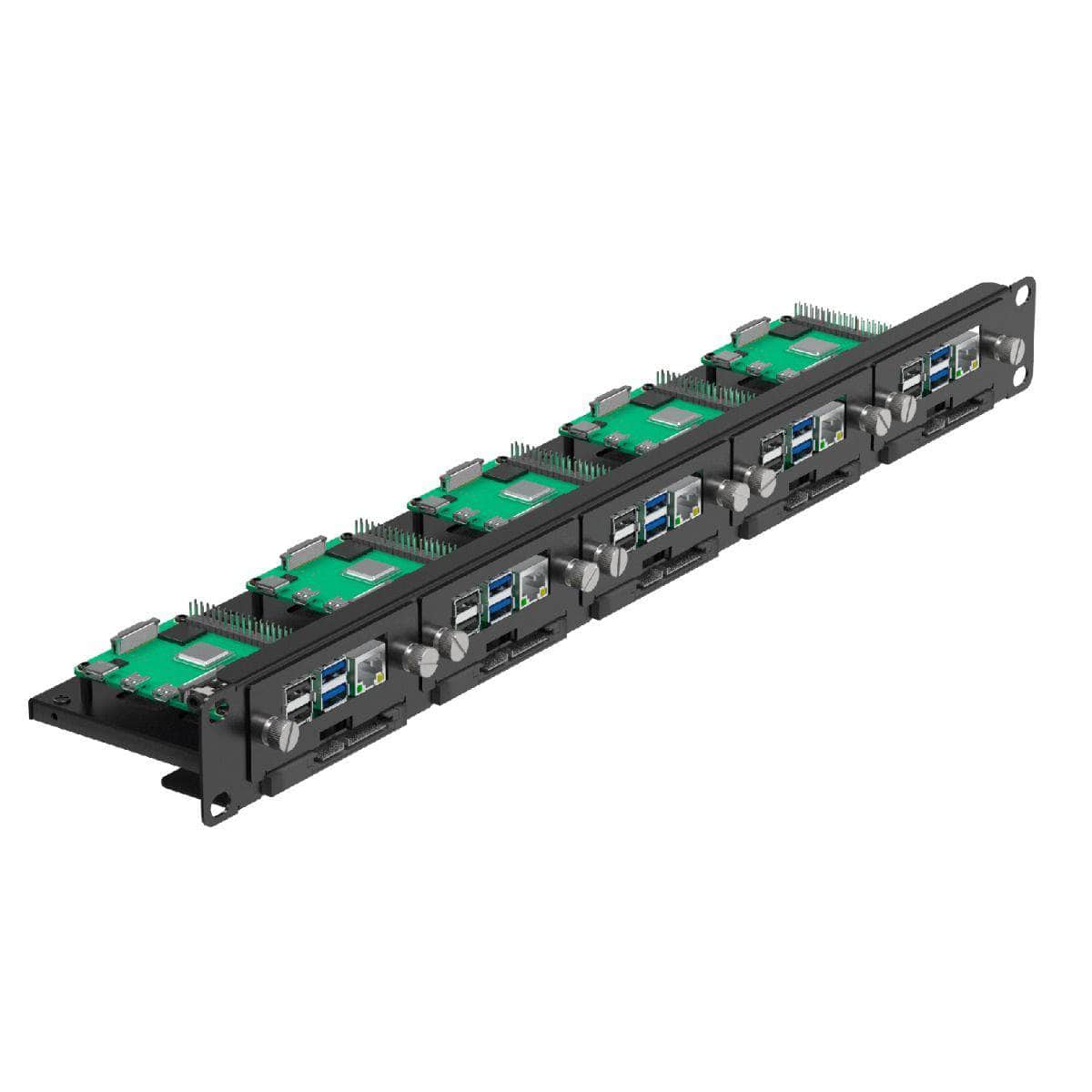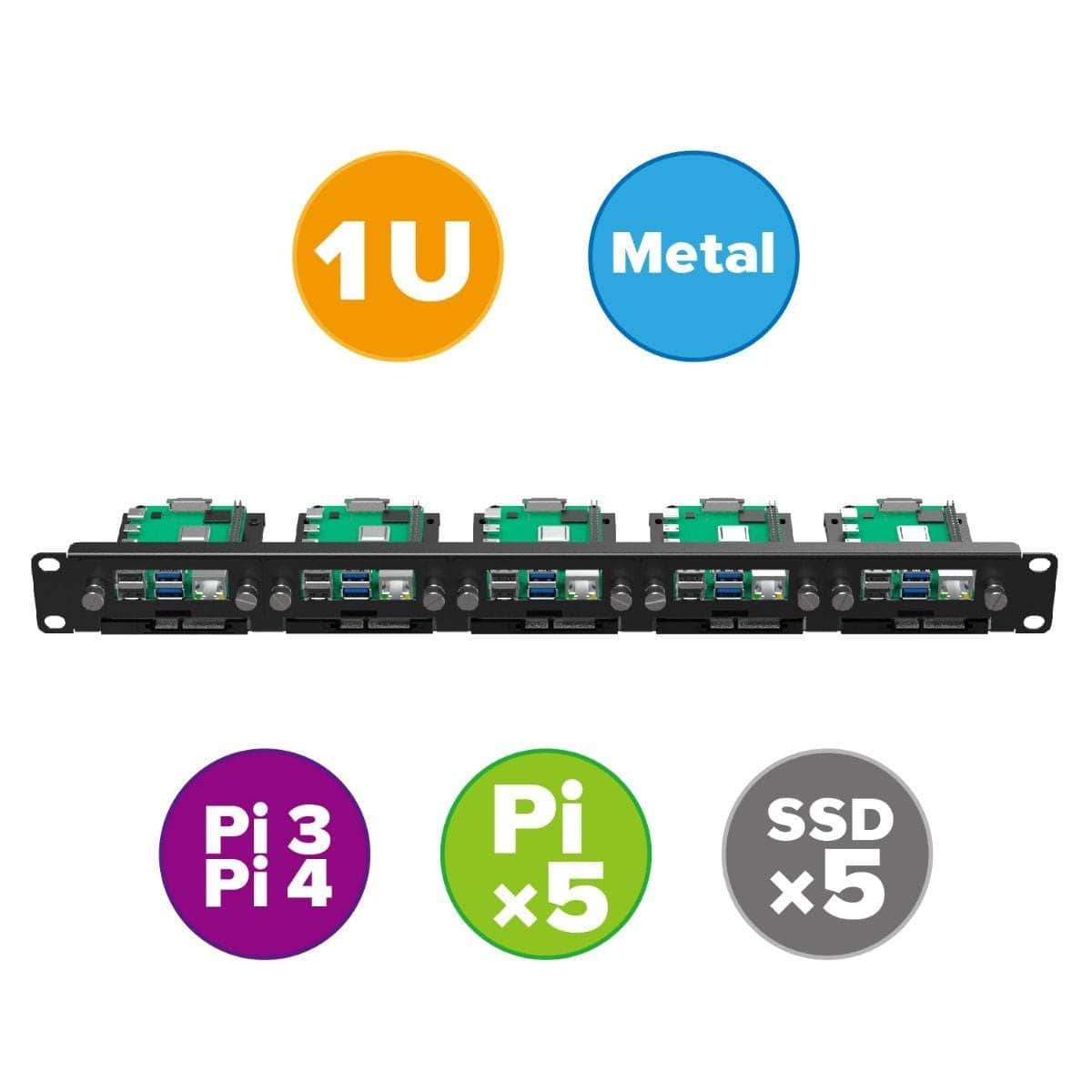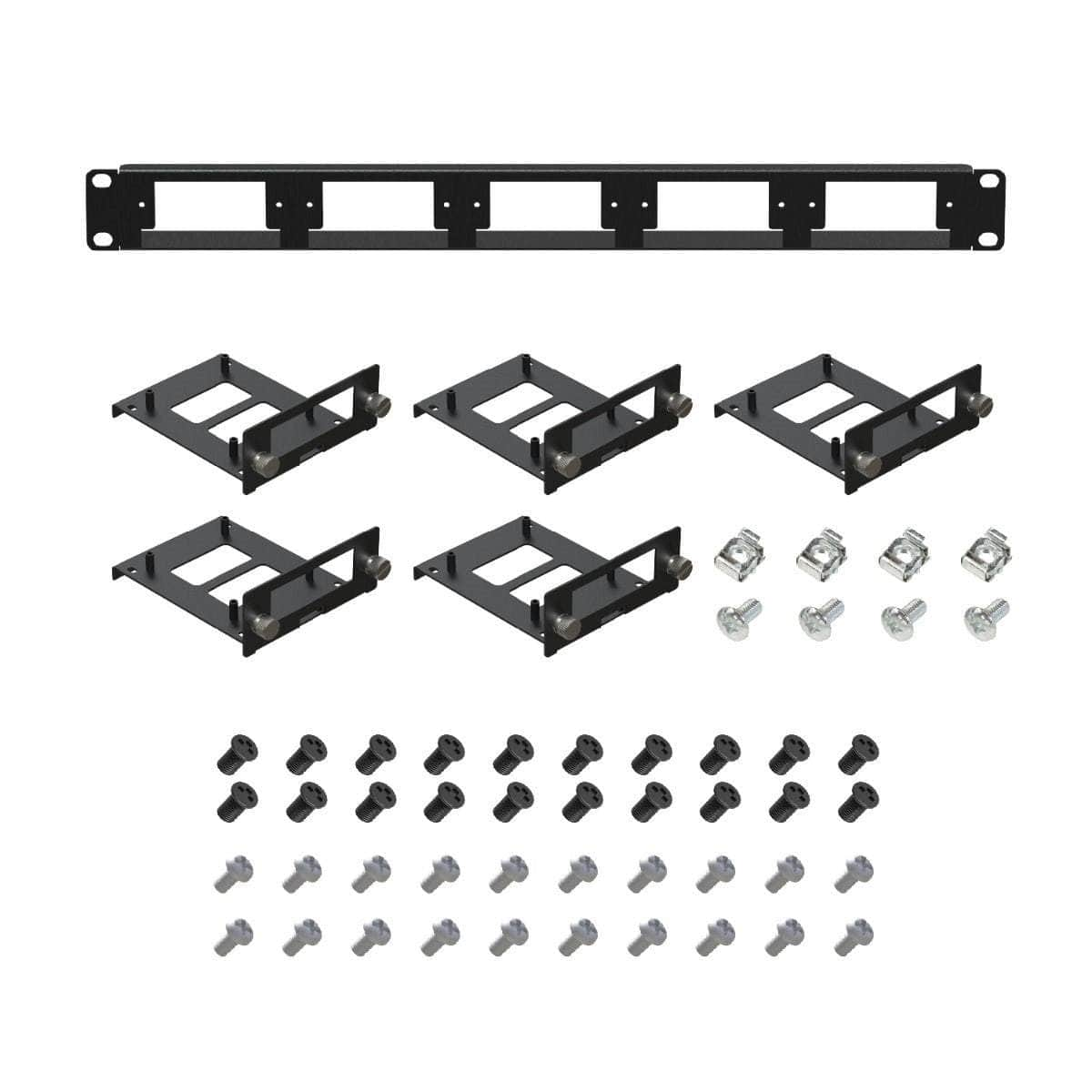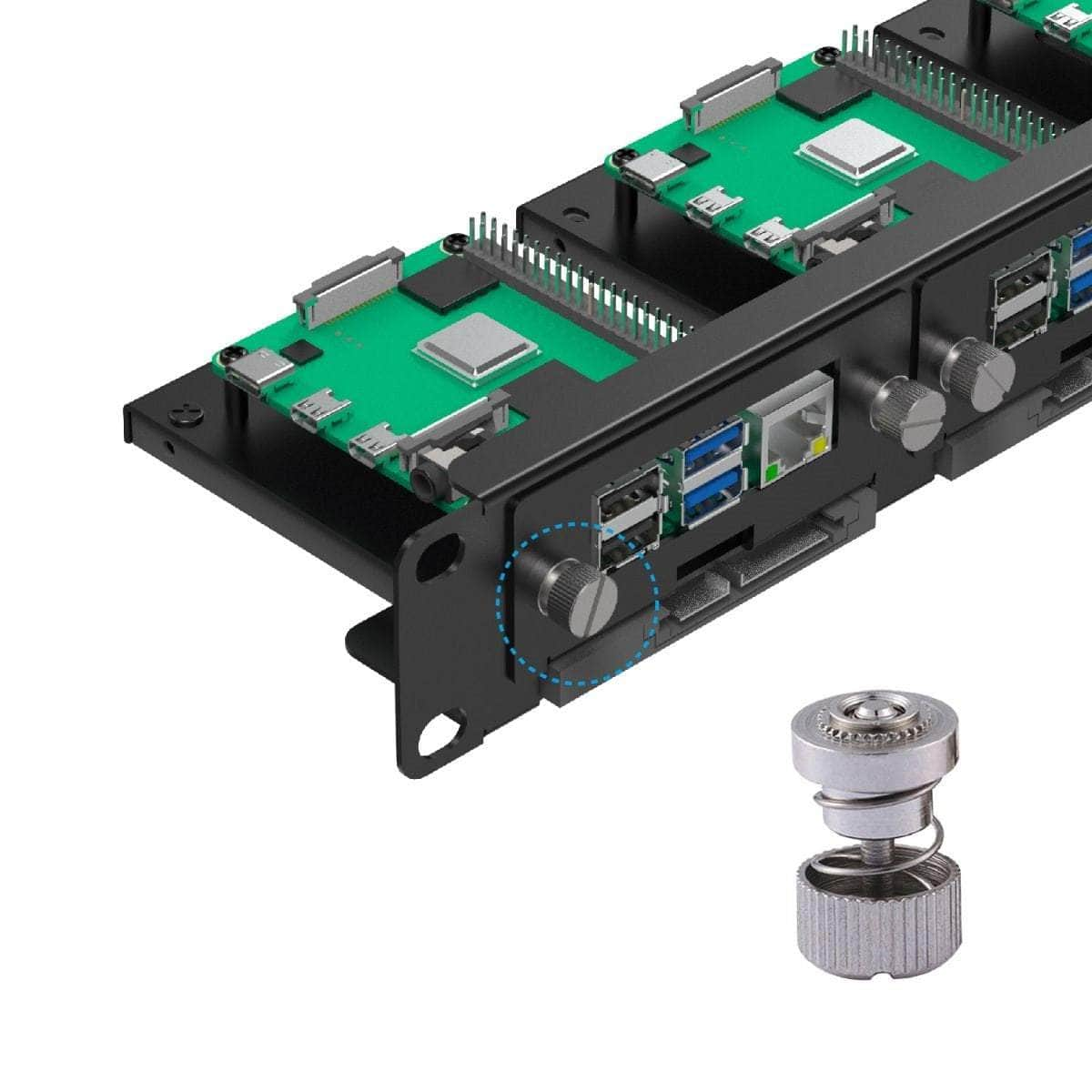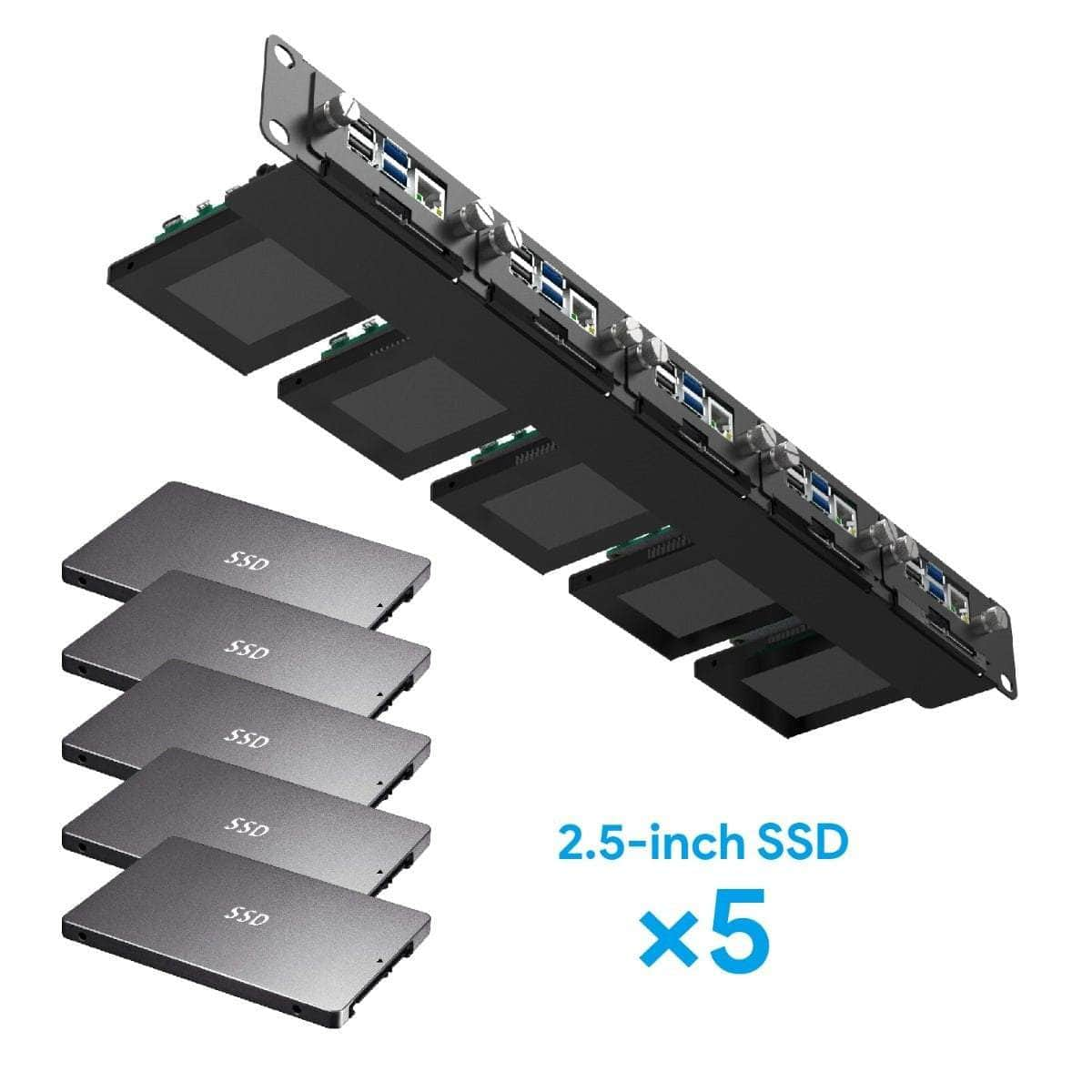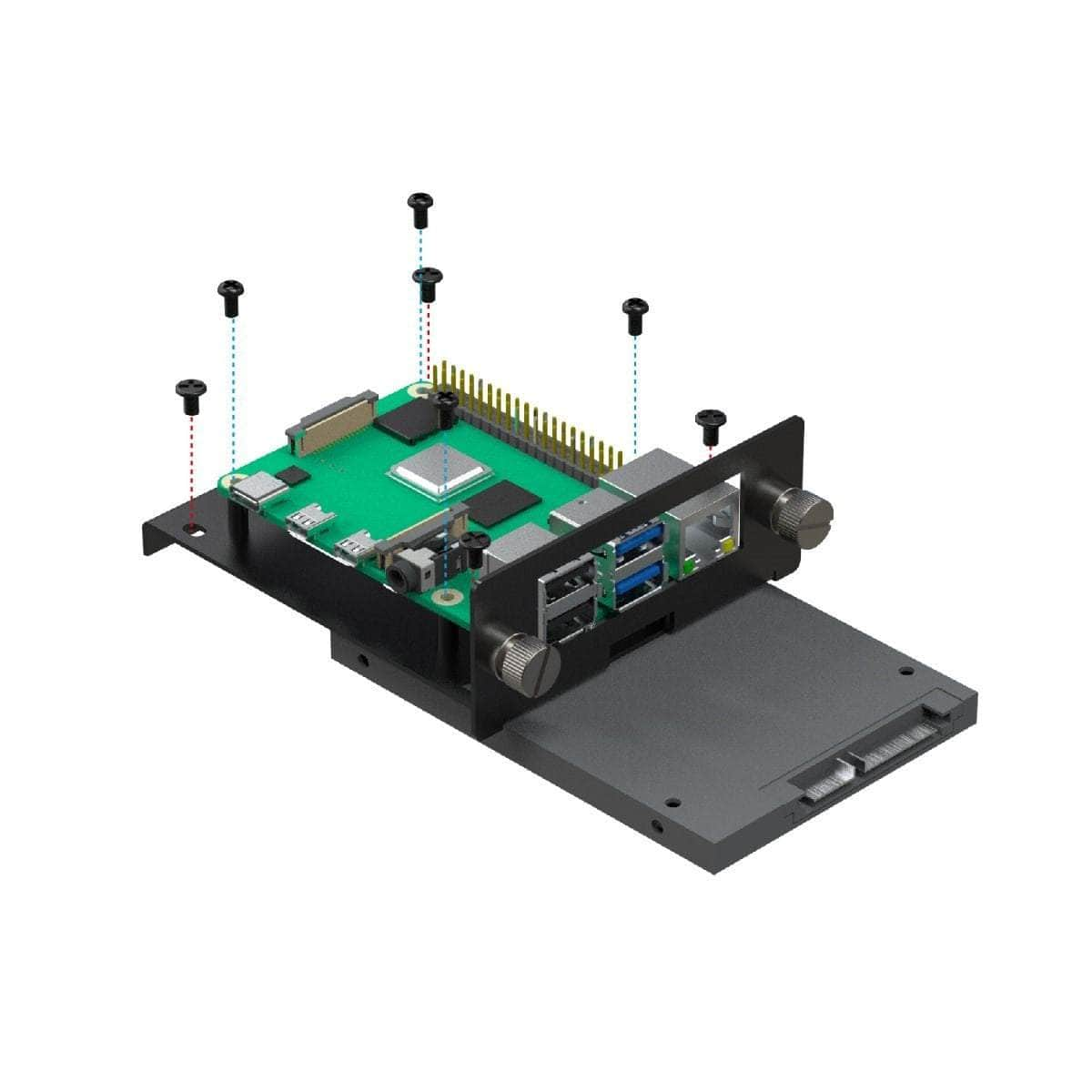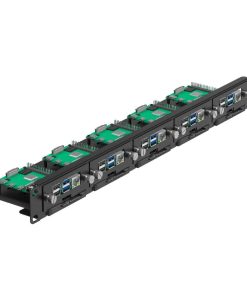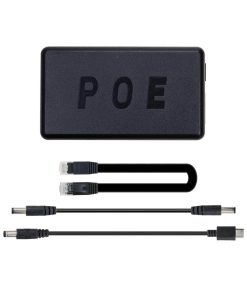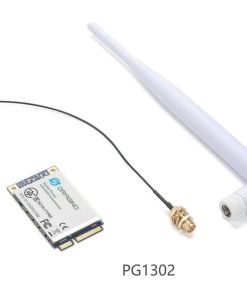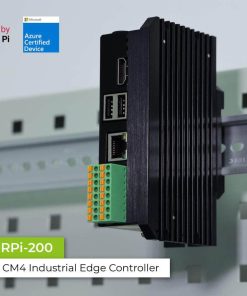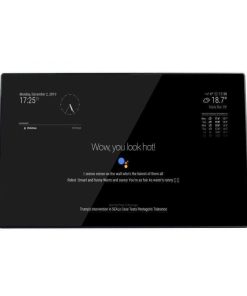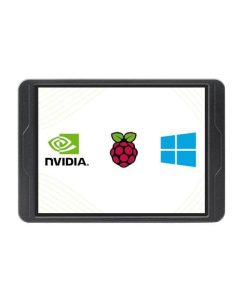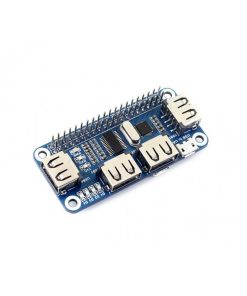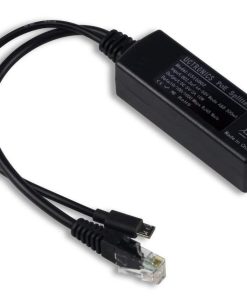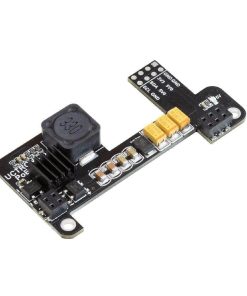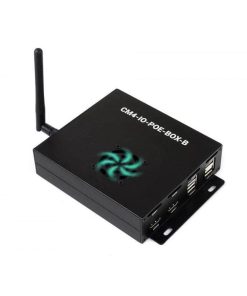Raspberry Pi Rackmount PoE SSD Bracket Supports 5 RPis Arducam
$ 169,00 $ 67,60
19″ 1U Raspberry Pi Rackmount, SSD Bracket for Any 2.5″ SSDs, Hold Up to 5 Raspberry Pi 4B Boards, Front-Removable with Captive Screws

1U Rackmount for 5 Raspberry Pis and SSDs
This is the latest 19″ 1U rack solution developed by UCTRONICS that supports 5 SSDs and 5 Raspberry Pis with the addition of optional SSD mounting, which facilitates more additional storage for your Raspberry Pi cluster.
Highlights:
- Come with 10 captive loose-off screws: this allows each RPi to be removed from the front, eliminating the need to disassemble all components for maintenance;
- Accommodates up to 5 SSDs and 5 Raspberry Pi’s to expand your Raspberry Pi cluster with larger network-attached storage.
- Each mounting bracket also has an opening for the SD card adapter ASIN: B09CKRDFTH, allowing you to remove the SD card from the front.
Feature
- Designed for Raspberry Pi and 2.5-inch SSD: Supports installation of 5 Raspberry Pis and 5 SSDs, compatible with any 2.5” Solid State Drive (7mm) and Rpi 4B/3B+, and other B/B+ models.
- Support Up to 5 modules: This solution allows you to use multiple pi boards at the same time. With hardware connections, you can install up to five modules, which is more beneficial for you to create clusters for distributed computing or manage cluster tasks.
- The SSD bracket also has two holes reserved for the SD card extension adapter ASIN: B09CKRDFTH, allowing you to access the SD card from the front of the rackmount. NOTE: The SATA to USB adapter is not included, please search for ASIN: B09CD94G5R to get the SATA adapter you need.
- Easy to Setup: Uses Captive loose-off screws for true no-installation, no screwdriver is needed to introduce your module into the enclosure.
- Compatible with PoE HAT
Note: Can’t work with 9mm HDD.

Package content
1× Rackmount
5× Mounting bracket with loose-off screws
1× Screw pack
Why is Raspberry Pi Cluster?
- Learn and experiment on Kubernetes, Docker Swarm, Serverless, Microservices, and Orchestration on bare metal.
- Build a testing environment for your cloud-native apps.
- Build a home server for web applications and databases.
- Build your own NAS or media center.
- Create a home automation system.
- Learn distributed computing and deployment from the ground up.
- Build private servers for numerous games.

Fast Shipping and Professional Packing
Through our long-term relationship in a long-standing partnership with UPS, FedEx, DHL and many other top global carriers we can provide a variety of shipping options. Our warehouse employees will pack every item to our exacting specifications. The goods you send us are checked thoroughly and secured properly prior to shipping. Everyday we deliver thousands of packages to customers across many countries. The fact that we're committed to becoming the biggest online retailer in the world is clear. Both Europe as well as the USA have warehouses and distribution centres.
Orders that contain more than one item are assigned processing times in accordance with the item.
We will inspect each and every one of the items ordered before shipping. Today, most orders will be shipped within 48 hours. The delivery time should be between 3-7 days.
Returns
The stock market is always changing. It's not entirely managed by us, since we have multiple organizations, such as the factory and our storage. Stock levels can fluctuate at any given time. Please understand it may happen that your order will be out of stock after the order is placed.
The policy is for 30 days. If you have passed 30 days in the past since you purchased, unfortunately we can't offer you a refund or exchange.
To be eligible for a refund, your item must be in good condition and in the same state that you received it. The item must be in the original packaging.
Related products
Raspberry Pi
LoRa IoT
Touch Display
13.3 Inch Magic Mirror, Raspberry Pi CM4 Mini PC with Voice Assistant, Touch Control Waveshare
Raspberry Pi
Raspberry Pi
Industrial IoT Module
RAK2013 Cellular WisLink Raspberry Pi-HAT BG96 LTE Cat-M1, NB-IoT with VoLTE RAK Wireless
Raspberry Pi
